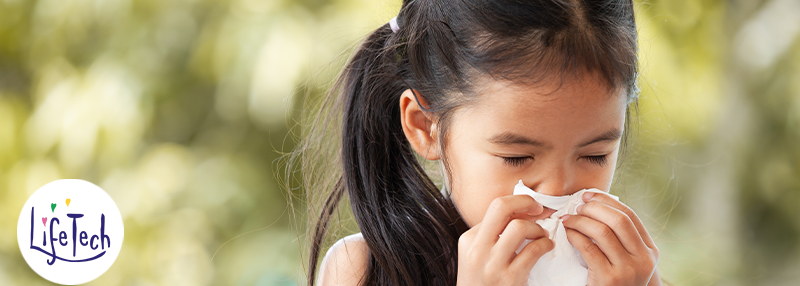
Spring is a beautiful time of year, with flowers blooming and trees regaining their lush green leaves. However, for many people, spring also means the return of seasonal allergies. Seasonal allergies, also known as hay fever or allergic rhinitis, can make this otherwise delightful season a challenge. Understanding the signs of seasonal allergies and how to manage them can help you enjoy spring to the fullest.
Signs of Seasonal Allergies
Seasonal allergies are triggered by allergens such as pollen from trees, grasses, and weeds. When these allergens are inhaled or come into contact with the skin or eyes, they can cause an allergic reaction. Common signs of seasonal allergies include:
-
Sneezing: Frequent and repetitive sneezing, especially after exposure to allergens.
-
Runny or Stuffy Nose: Nasal congestion, runny nose, and postnasal drip.
-
Itchy Eyes, Nose, and Throat: Persistent itching in the eyes, nose, and throat.
-
Watery Eyes: Excessive tearing or watery eyes.
-
Coughing and Wheezing: Some people with seasonal allergies may experience coughing and wheezing, especially if they have asthma.
-
Fatigue: Allergies can lead to fatigue and irritability due to disrupted sleep caused by symptoms like nasal congestion.
Managing Seasonal Allergies
While it's impossible to completely avoid allergens, there are several strategies you can use to reduce exposure and manage symptoms:
- Monitor Pollen Counts: Check pollen forecasts and try to stay indoors when pollen counts are high.
- Keep Windows Closed: Keep windows and doors shut, especially on high pollen days, to prevent pollen from entering your home.
- Use Air Conditioning: Use air conditioning in your home and car to filter the air and reduce exposure to pollen.
- Limit Outdoor Activities: Try to limit outdoor activities, especially in the early morning and evening when pollen counts are highest.
- Wear Sunglasses: Wearing sunglasses can help protect your eyes from pollen.
- Shower and Change Clothes: After spending time outdoors, shower and change your clothes to remove pollen from your skin and hair.
- Use Saline Nasal Rinses: Saline nasal rinses can help clear your nasal passages of allergens and reduce symptoms.
- Over-the-Counter Medications: Antihistamines, decongestants, and nasal corticosteroids can help relieve symptoms. Consult with a healthcare professional before starting any new medication.
- Consider Allergy Shots: Allergy shots, or immunotherapy, can help reduce the severity of allergic reactions over time by desensitizing your body to allergens.
Don't let seasonal allergies dampen your springtime joy. By recognizing the signs and taking proactive steps to manage your symptoms, you can enjoy the season to the fullest. If you find that over-the-counter medications are not providing sufficient relief, consider consulting with an allergist to explore other treatment options, such as prescription medications or allergy shots.
Remember, each person's allergy triggers and symptoms are unique, so it's essential to find the right approach that works for you. Take control of your seasonal allergies today and reclaim your springtime vitality!
April 2, 2024 by Life Tech
Spring is a beautiful time of year, with flowers blooming and trees regaining their lush green leaves. However, for many people, spring also means the return of seasonal allergies. Seasonal allergies, also known as hay fever or allergic rhinitis, can make this...